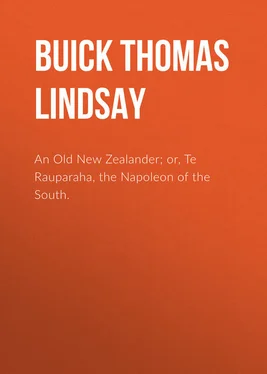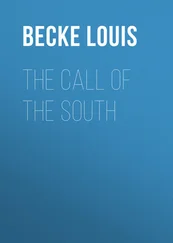Thomas Buick - An Old New Zealander; or, Te Rauparaha, the Napoleon of the South.
Здесь есть возможность читать онлайн «Thomas Buick - An Old New Zealander; or, Te Rauparaha, the Napoleon of the South.» — ознакомительный отрывок электронной книги совершенно бесплатно, а после прочтения отрывка купить полную версию. В некоторых случаях можно слушать аудио, скачать через торрент в формате fb2 и присутствует краткое содержание. Жанр: foreign_antique, foreign_prose, на английском языке. Описание произведения, (предисловие) а так же отзывы посетителей доступны на портале библиотеки ЛибКат.
- Название:An Old New Zealander; or, Te Rauparaha, the Napoleon of the South.
- Автор:
- Жанр:
- Год:неизвестен
- ISBN:нет данных
- Рейтинг книги:3 / 5. Голосов: 1
-
Избранное:Добавить в избранное
- Отзывы:
-
Ваша оценка:
- 60
- 1
- 2
- 3
- 4
- 5
An Old New Zealander; or, Te Rauparaha, the Napoleon of the South.: краткое содержание, описание и аннотация
Предлагаем к чтению аннотацию, описание, краткое содержание или предисловие (зависит от того, что написал сам автор книги «An Old New Zealander; or, Te Rauparaha, the Napoleon of the South.»). Если вы не нашли необходимую информацию о книге — напишите в комментариях, мы постараемся отыскать её.
An Old New Zealander; or, Te Rauparaha, the Napoleon of the South. — читать онлайн ознакомительный отрывок
Ниже представлен текст книги, разбитый по страницам. Система сохранения места последней прочитанной страницы, позволяет с удобством читать онлайн бесплатно книгу «An Old New Zealander; or, Te Rauparaha, the Napoleon of the South.», без необходимости каждый раз заново искать на чём Вы остановились. Поставьте закладку, и сможете в любой момент перейти на страницу, на которой закончили чтение.
Интервал:
Закладка:
The position was thus becoming grave for Te Rauparaha, and in an effort to stem the threatening disaster he sought to turn to some practical purpose the influence and prestige which he had now gained with the neighbouring chiefs. He suggested to his more trusted friends amongst the Maori leaders the need and wisdom of a confederation of all their tribes against the oppression of the Waikato people. But, though conducted with consummate tact and skill, these negotiations were destined to be futile. While all were friendly enough with Te Rauparaha, mutual jealousies existed amongst the other tribes, which destroyed any prospect of that unanimity and cohesion so essential to the success of such a scheme. Nga-Puhi remembered how Ngati-Maru had invaded their territory in days of old, and now that they were possessed of muskets they saw a prospect of repaying the debt – a chance much too promising to be lightly thrown away. Te Heuheu, the great chief at Taupo, would not coalesce with Ngati-Maru, and the Arawa still nursed their grudge against Tainui. These ancient grievances, which never seemed to die, kept the tribes outside Waikato apart, while the fact that Te Wherowhero had been able to form an offensive and defensive alliance with the Blücher of Maoridom, Te Waharoa, so strengthened his position that, after months wasted in fruitless appeal, Te Rauparaha returned to Kawhia more than ever convinced that if his tribe was to be spared the humiliation of defeat, and perhaps annihilation, self-reliance must be the keynote of his future policy.
During the next two years (1816-1818) Te Rauparaha devoted himself to occasional excursions against Waikato, in which he was moderately successful; but his more important operations at this period were directed against the tribes of Taranaki. The peculiar ethics of Maori warfare were largely responsible for the first of these southern descents upon a people with whom he was now beginning to enjoy considerable intercourse. A marriage had been celebrated between Nohorua, his elder brother, and a Taranaki lady, 32 32 Whare-mawhai, sister of Huri-whenua, chief of the Ngati-Rahiri, who lived at Waihi, four or five miles north of Waitara.
and by way of commemorating the solemnity, a feast on a sumptuous scale had been given to the bridegroom's friends. Te Rauparaha, with the generosity for which he was at this time remarkable, was not slow to return the compliment, and in the course of a few months he journeyed southward to Te Taniwha pa , where Huri-whenua, the brother of Nohorua's young wife, lived, bringing gifts of dried fish and other seasonable foods. These social amenities led to still more intimate relations, and at the end of the following kumara and taro harvest the chief of Te Taniwha proceeded northward in his fleet of canoes on a promised visit to Kawhia. A fair wind beating into their triangular sails carried the canoes to within ten miles of their destination, and at the close of day the fleet headed for the shore at Harihari. Next morning they were met at their camp by Te Rauparaha and Rauhihi, who assured them of a cordial welcome at Kawhia and then proceeded overland to prepare their reception. In the meantime a rolling surf had set into the bay where the canoes were beached, and in the operation of launching them several were overturned and their crews nearly drowned. This misfortune, which involved the loss of all the food intended for the feast, angered Huri-whenua exceedingly, and he adopted a strange but characteristically Maori-like method of seeking balm for his injured feelings. Gathering a party of his people together, he set off in pursuit of Te Rauparaha and his friend, and, attacking them, succeeded in killing Rauhihi, but not Te Rauparaha, who reached Kawhia after an exciting chase. His assailants, knowing full well that this unprovoked attack upon their chief would excite the indignation of Ngati-Toa, retired in haste to their home, which they immediately began to place in a condition of defence against the day when Te Rauparaha would return to seek satisfaction for the contemptuous disregard of his hospitality and the menace offered to his life. Nor were their precautions taken a moment too soon. Scarcely had the walls been strengthened and the Waihi stream dammed up so as to form a wide lake on one side of the pa than Te Rauparaha appeared, accompanied by Tuwhare, 33 33 Tuwhare belonged to the Roroa branch of the Nga-Puhi tribe.
one of the most celebrated Nga-Puhi chiefs of his day. This was Tuwhare's first visit to the south. He had gladly accepted the invitation to join the expedition, for his purpose in coming to Kawhia had been to lead an invasion into Taranaki territory, in order to secure some of the valuable mats, for making which the people of that part were widely famed.
Tuwhare's contingent consisted of not more than two hundred men, but they brought with them something which, at this period, was more to be dreaded than men – the deadly musket. A few of these arms were carried by the invaders, while the defenders had not as yet even heard of or seen them. 34 34 When the musket was first introduced into Taranaki, a slave was very anxious to know how it was used. A Nga-Puhi warrior explained to him the method of loading and priming, then told him to look down the muzzle. The slave did so, whereupon the Nga-Puhi pulled the trigger, and the top of the unfortunate slave's head was blown off, much to the amusement of the surrounding crowd.
The precautions of the garrison had robbed the northerners of all hope of successfully capturing the pa by assault, and so they sat down to besiege it in the most leisurely fashion. For several weeks besiegers and besieged watched each other across the wide lagoon which had been formed by the waters of the Waihi. At last Te Rauparaha and his people, growing weary of the enforced inactivity, sent proposals of peace to Huri-whenua. These were accepted, and subsequently ratified, but not before the pride of Ngati-Toa had been salved by their insistence upon a quaint condition. Te Rauparaha, recognising that the damming of the Waihi stream had been the means of frustrating his plans, demanded that, before the siege was raised, the dam should be removed. The point was conceded and the barrier broken down; and, as the waters rushed back into their bed, the northerners ostentatiously discharged their muskets in token of victory, and "then," says a Maori chronicler, "this ignorant people of these parts heard for the first time the noise of that weapon, the gun." The war party remained for some time on amicable terms at Te Taniwha, and before they had resolved to return home they were importuned to engage in further aggressions by Te Puoho, of whom we shall hear more anon. This warrior was a man of influence amongst the Ngati-Tama tribe, who held what has been called "the gate of Taranaki"; and it was due to the numerous connections by marriage between the northerners and Ngati-Tama that the former had been permitted to pass unmolested to the attack upon Te Taniwha. Te Puoho now sought recompense for his friendship by enlisting the sympathies of the northern leaders in the redress of his own grievances. He solicited their aid in an attack upon Tatara-i-maka pa , the home of those who had been responsible for the death of his sister not long before.
Obedient to Te Puoho's summons, and eager to secure mats and heads and slaves, the war party marched upon the pa , which stood with its terraced ramparts upon the sea-coast eleven miles south-west of New Plymouth. Seeing the invaders approach, the defenders went out to meet them, and gave them battle on the open space in front of the pa ; but the sound of the guns, and the sight of men falling as by the hand of some invisible enemy, so terrorised the defenders that their lines were soon broken, and they fled, a demoralised host, back to their stronghold, which was immediately stormed and taken with great slaughter. This incident inspired the following lament, which was composed by one of the Taranaki people, in memory of those who fell at Tatara-i-maka: —
Читать дальшеИнтервал:
Закладка:
Похожие книги на «An Old New Zealander; or, Te Rauparaha, the Napoleon of the South.»
Представляем Вашему вниманию похожие книги на «An Old New Zealander; or, Te Rauparaha, the Napoleon of the South.» списком для выбора. Мы отобрали схожую по названию и смыслу литературу в надежде предоставить читателям больше вариантов отыскать новые, интересные, ещё непрочитанные произведения.
Обсуждение, отзывы о книге «An Old New Zealander; or, Te Rauparaha, the Napoleon of the South.» и просто собственные мнения читателей. Оставьте ваши комментарии, напишите, что Вы думаете о произведении, его смысле или главных героях. Укажите что конкретно понравилось, а что нет, и почему Вы так считаете.











